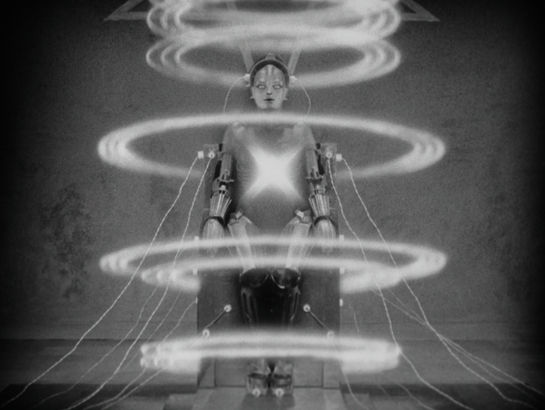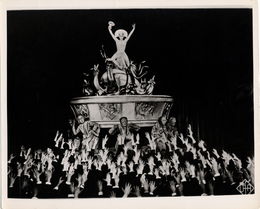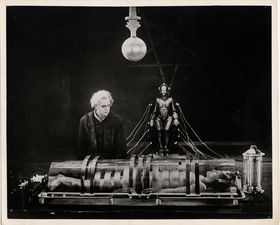METROPOLIS

Germany (1926)
Director: Fritz Lang
Music: Gottfried Huppertz
It all started in Buenos Aires in 2008. The METROPOLIS restoration project, which attracted international attention, began with the surprise discovery of a long-forgotten unique version of the film, including scenes that were previously believed lost. It is these new parts that sets METROPOLIS apart from the earlier, substantially shorter 1988 and 2001 versions. Against the breath-taking science fiction background, the human element has been given a more prominent role, adding a different slant to the storyline.
The music plays a crucial role in the reconstructed montage of the premiere version, the primary source being the original score by Gottfried Huppertz.

THE STORY: Political and economic power in Metropolis centres on one person: From the ‘New Tower of Babel’, Joh Fredersen reigns like an absolute monarch over Upper Town and Lower Town. Perceiving himself as the ‘brain’, the ruler considers people as mere ‘hands’ in the machinery. The human aspect - love and friendship, rebellion and revenge - is still powerful enough to shake the foundations of the futuristic city’s technological world. The rich and powerful reside in Upper Town. If they are not playing sports in a gigantic stadium, their sons are being entertained by charming companions in the Eternal Gardens. This is the world where Freder lives, the ruler’s only son. When Maria takes working children on a surprise visit to this paradise, Freder falls in love with her gentle beauty. He decides to see her world and the subterranean machinery seems a Moloch to him. Aghast, Freder appeals to his father, albeit without avail. Joh gets a ruthless henchman to tail Freder.
In the face of an imminent worker’s uprising, Fredersen consults the inventor Rotwang, his onetime rival. Rotwang shows him his secret creation, a robot he has built to replace Hel, Freder’s mother, which Rotwang had previously lost to Federsen. Fredersen makes a plan: The machine woman is to replace Maria and manipulate the workers. Rotwang pretends to agree but his real aim is revenge. He wants the fake Maria to destroy the city and Fredersen’s son. Rotwang kidnaps Maria and transfers her likeness to the machine person, making her into both a ruthless agitator and a lascivious seductress.

The false Maria challenges Freder‘s love and starts the cataclysmic worker’s rebellion. The heart machine is destroyed and the resulting flood threatens to drown the Lower Town. In the sweeping finale, Freder and the real Maria get back together and save the children from drowning. The mob goes after the machine woman and burns her at the stake. The scheming inventor also dies in the battle. Ruler Fredersen and foreman Groth seal the reconciliation between the workers and the ruling class with a handshake: ‘The heart must be the mediator between brain and hands.’
Gottfried Huppertz, Adaptation by Frank Strobel and Marco Jovic (2010)
INSTRUMENTATION: 1+1/pic.1+1/ca.2+2asax.2 – 4.3.3.1 – timp.3perc – cel.org – hp – strings
This is a production by the EUROPÄISCHE FILMPHILHARMONIE.
The project was supported by ZDF/ARTE.
Contact: Ekkehard Jung
Phone +49 (0) 30 27890190
e-mail: welcome@filmphilharmonie.de
